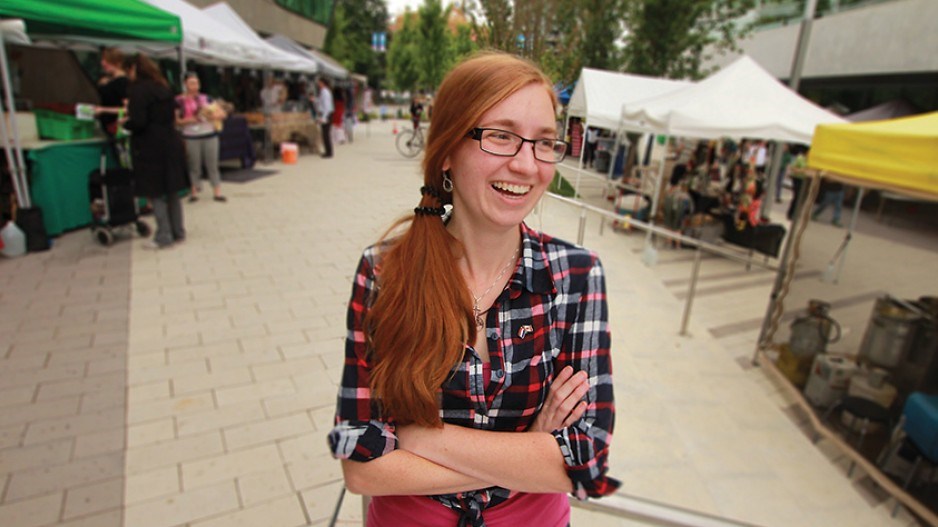The Surrey Urban Farmers Market is hoping to expand to keep pace with the city’s exponential population growth.
While the city is fast approaching half a million people and has more than 9,290 hectares within the Agricultural Land Reserve, there is only one farmers’ market in the downtown core. Nicole Ensing, the new president of the Surrey Urban Farmers Market, said so far any attempts to expand have hit substantial obstacles.
So far the organizers have tried to expand the hours – currently 1 p.m. to 6 p.m. on Wednesdays – and find free available parking to help encourage more vendors and attendees, but those efforts have met with mixed success. Located at City Hall Plaza (13450 104 Avenue), the market has only a few dozen vendors, food trucks and artisans. Ensing said this is small given the size of Surrey’s food production industry. Surrey farms account for over $167 million or 22% of the total gross annual farm receipts in Metro Vancouver. There are more than 500 farms in Surrey with more than 3,300 employees and a total farm capital value of farmland and buildings estimated at over $1.4 billion.
Ensing said a number of issues might be contributing to the market’s resistance to growth, including the city’s spread-out population and concerns over financial viability for growers selling at markets. Ensing added she’s not sure why Surrey doesn’t already have several farmers’ markets up and running, but she’s now looking to find the answer.
“I want to listen to our farmers, to walk their land and see what they do and what challenges they face,” she said. “I want to listen to market-goers, to find out how they heard about the Surrey Urban Farmers Market and why they support their local farmers’ market.
“I want to listen to people who disdain the idea of farmers’ markets [or] don’t understand what the hype is about, or have no idea that Surrey has a farmers’ market.”
Two recent government announcements concerning farmers’ markets and the food industry bode well for Ensing’s expansion plans in Surrey. The BC Association of Farmers’ Markets recently launched a social media campaign titled #MeetMyMarket, and the provincial government’s Buy Local program is providing more than $47,000 to the organization to help support the campaign.
Last Wednesday International Trade Minister Ed Fast was in Abbotsford announcing that Canada and China have agreed to a sustained market plan to ship British Columbia blueberries overseas to the world’s most populous nation. Once fully implemented, the deal will add $65 million annually to the Canadian blueberry industry, the government predicts.
B.C. is the largest blueberry-producing region in the world with over 800 growers. Many growers are located in Surrey and also sell their blueberries locally as well as exporting abroad. Ensing said she hopes all the discussion will draw increased attention to both the Surrey Urban Farmers Market and the local food production industry as well.
“There is very little media hype or conversation about the farmers’ market. We don’t often get news stories and our Facebook page rarely sees discussion from the public.”




